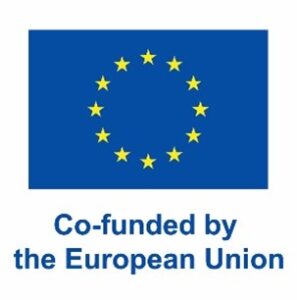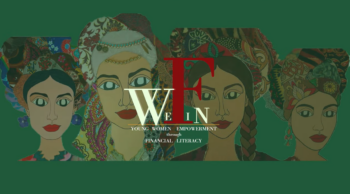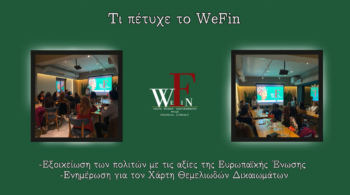The project’s objective is to acquaint citizens with the core values of the EU, particularly focusing on the Charter of Fundamental Rights. Emphasis will be placed on key rights such as gender equality, human dignity, freedom and security, and education. A special focus will be on promoting financial literacy among young women as a means to foster equality, independence, freedom, self-respect, and dignity, contributing to their overall well-being, including mental and physical health.
At the same time, the project aims to enhance cooperation, networking, and synergies among NGOs. Through widespread dissemination and continued cultivation of its outcomes, the project seeks to engage citizens actively in initiatives that elevate their awareness of the fundamental rights and values of the EU.
Target Groups:
a) Young women aged 19-30 living in the Thessaly Region,
b) The general public, and
c) Organizations, associations, clubs, and other entities
Activities:
- 24 hours of group financial literacy training were provided to 60 young women (ages 19–30) from the Region of Thessaly, led by 7 experienced trainers across various topics. Training focused on empowering participants through financial education to foster gender equality, independence, dignity, and well-being.
- 60 hours of individual coaching sessions complemented the group training, offering personalized guidance to reinforce learning and support personal development.
- Production of the “WeFin” podcast – 8 episodes exploring themes such as financial autonomy, gender equality, and human rights, made available to the general public.
- Two study visits to institutions in Greece and Rome for the exchange of good practices and know-how, fostering deeper collaboration
- Communication outreach and dissemination activities expanded the project’s impact to at least 3,000 citizens across Greece—including parents, educators, journalists, policymakers, and civil society actors.

Funded by the European Union. Views and opinions expressed are however those of the author(s) only and do not necessarily reflect those of the European Union or the European Education and Culture Executive Agency. Neither the European Union nor the granting authority can be held responsible for them.


